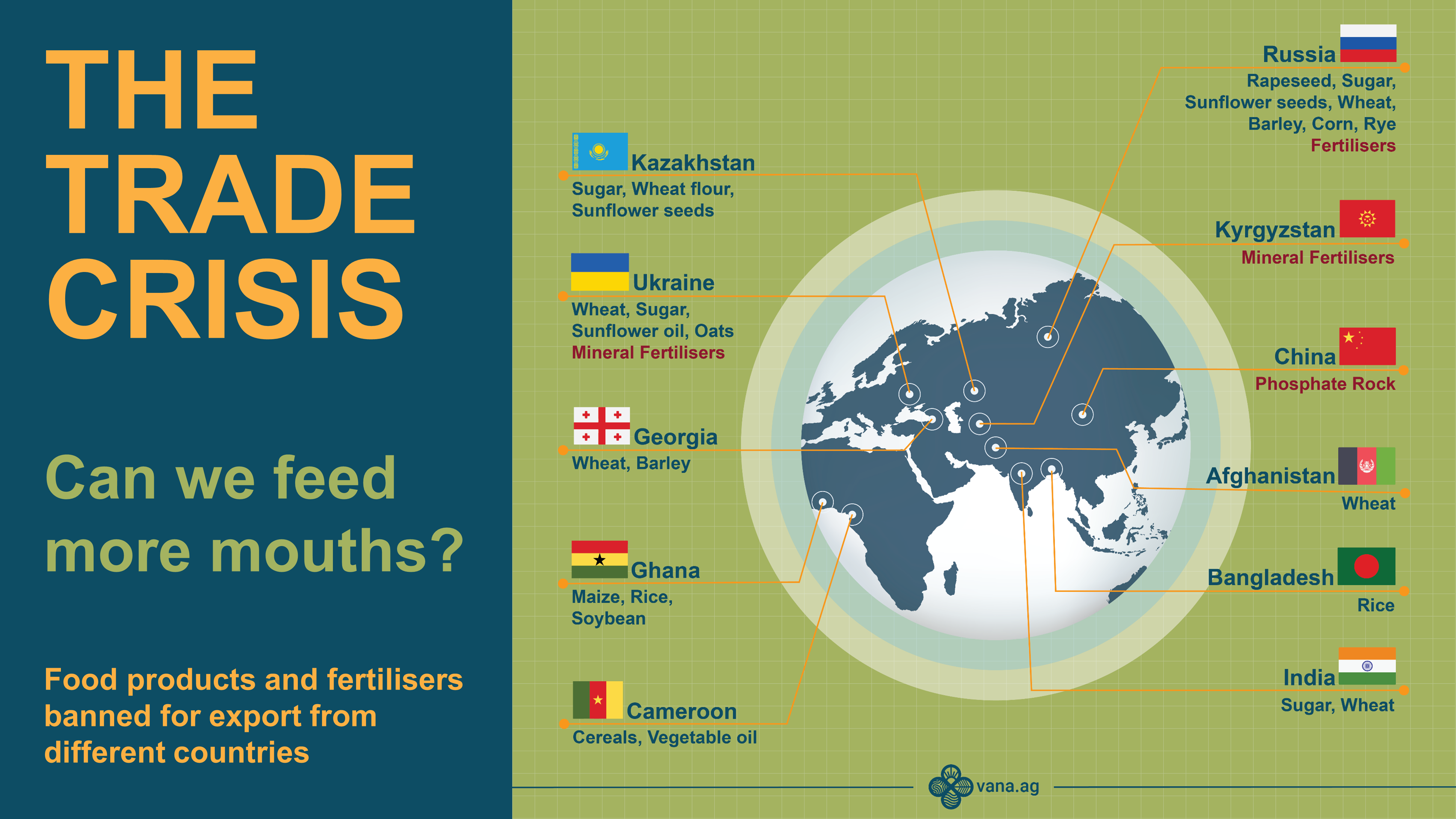
Food prices have been skyrocketing amid COVID, climate change, and conflicts worldwide. World Hunger Statistics reports that global hunger has risen dramatically over the last three years, pushing around 830 million people into poverty. Since the Russian invasion of Ukraine on February 24, the number of countries that imposed export restrictions on food has increased from 3 to 16, aggravating global hunger.
16 countries have imposed export restrictions, affecting 12.4% of the total calories traded in the world. 7 countries have implemented export licensing requirements, affecting 4.6% of the world’s traded calories. Which means that around 17% of the total calories traded worldwide have been affected by the export regulations. However, many of these export restrictions are not complete bans; they effectively are increased taxes or transaction costs that raise the prices of commodity imports, which in turn increases consumer prices.
Many countries, especially in Europe and Central Asia have formulated trade-related policies on food products and fertilisers since the beginning of the year. Hence, export bans on products such as rice, wheat, and citrus fruits from top exporters like India, Russia, and Turkey have led to an increase in the price of these products, estimated at 12.3%, 9.0%, and 8.9%, respectively. For products like soybean oil and maize, the exporters imposing restrictions are not among the top five global exporters. However, their demand is still high in the market, causing a significant impact on the prices of these products. Other notable bans are from Indonesia on palm oil exports, Argentina on beef exports, and Turkey and Kazakhstan on various grains.
The products affected by bans are mostly grains like wheat and corn, and edible oils. Therefore, countries with high import dependency like Mongolia, Egypt, Sudan, and North African countries show a high share of restricted calories in their import mix. Countries like Brazil, Bangladesh, Argentina, Nigeria, Kenya, and Ghana depend on Russian fertilisers. However, with the ongoing conflict, the international trade of fertilisers is jeopardised. In fact, according to the World Bank, between April 2020 and March 2022, fertiliser prices have almost tripled and are likely to go up further. Even countries that had seemed to be on the track to prosperity and stability now stare at debt, fragility, and uncertainty about the future.
Export bans seem to be contagious. As food and fertiliser prices continue to grow across the world, past experiences indicate that more countries will impose restrictions. International Food Policy Research Institute (IFPRI) suggests that countries must continue to exempt food and fertiliser from sanctions, refrain from imposing export bans, and avoid hoarding. Countries relying heavily on food imports should identify alternate providers to meet their food requirements and should also diversify their local production.
The global food situation is in crisis as less food is available, available food is hardly accessible, and accessible food is not affordable.

